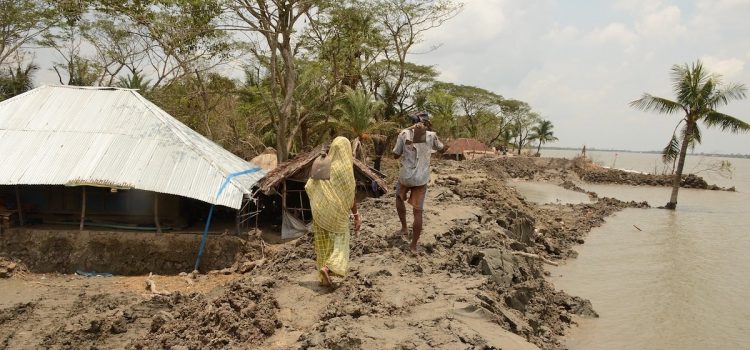

This article is an excerpt from the Shortform book guide to "False Alarm" by Bjørn Lomborg. Shortform has the world's best summaries and analyses of books you should be reading.
Like this article? Sign up for a free trial here.
Why can the Netherlands deal with flooding better than Bangladesh can? What’s the connection between economic growth and climate change?
Investments in innovation and adaptation lessen the impact of climate change, but many countries lack the funds to make this investment. Consequently, Bjorn Lomborg argues that creating economic growth in poor countries is itself a promising climate policy.
Keep reading to see how Lomborg arrives at this conclusion.
Economic Growth & Climate Change
As a case study of the connection between economic growth and climate change, Lomborg considers two countries: the Netherlands and Bangladesh. These countries are similarly susceptible to flooding—67% of the Netherlands is vulnerable to floods, compared with 60% of Bangladesh. Yet, because Bangladesh is impoverished, flooding is far more destructive there than in the wealthy Netherlands.
To show as much, Lomborg observes that, after a flood killed 1,800 citizens in 1953, the Netherlands invested $11 billion in Delta Works—a series of dams and barriers to combat flooding. Since then, they’ve seen only three floods and one fatality from flooding.
| Concrete Strategies to Stimulate Economic Growth Lomborg doesn’t offer many actionable strategies for cultivating economic growth in impoverished countries. Especially in light of the Covid-19 pandemic, which damaged economies in many developing countries, such actionables are crucial. To that end, experts recommend a variety of approaches to foster growth, such as: • Invest in training civil servants, like government clerks and regulators. This improves the public sector by creating more competent public employees. • Decrease regulatory and tax barriers that companies have to navigate. This allows businesses to increase efficiency and production more easily. • Open up markets to international trade. This encourages more sales and purchases, leading to increased economic growth. • Fund schools that teach basic skills, like literacy and mental math. This increases average cognitive ability, which is correlated strongly with income as an adult. |
Conversely, floods still decimate Bangladesh: Lomborg notes that in 2019, floods displaced 200,000 Bangladeshi. Since Bangladesh lacks funding to combat flooding, it suffers more than the Netherlands, despite being similarly susceptible to flooding. If its economy were more prosperous, Lomborg claims Bangladesh would better adapt to this flooding.
(Shortform note: In 2022, the Bangladeshi government is expected to approve a National Adaptation Plan, implementing policy initiatives that are designed to increase resilience to flooding. For example, the plan involves improving early warning systems for flash floods, while also encouraging joint river basin management with neighboring countries. Between 2023-2050, the plan is expected to cost $230 billion, though donations from global climate funds cover much of that investment.)
According to Lomborg, the points above lead to a general conclusion: Wealthy countries can better cope with climate change, while poor countries are disproportionately harmed. Therefore, sparking economic growth in poor countries—even at the cost of increasing carbon emissions—is a promising approach to climate change.
(Shortform note: Experts agree that climate change disproportionately affects poor countries. Consequently, some have gone beyond Lomborg’s recommendation of sparking economic growth and argued that wealthy countries should provide direct financial support for sustainable development in such countries. This financial assistance, they argue, will yield high returns on investment from the climate change it prevents down the road.)

———End of Preview———
Like what you just read? Read the rest of the world's best book summary and analysis of Bjørn Lomborg's "False Alarm" at Shortform.
Here's what you'll find in our full False Alarm summary:
- Why climate change isn't as cataclysmic as people think
- The unintended costs that come with climate activists’ proposed approaches
- A look at the most promising approaches to climate change






